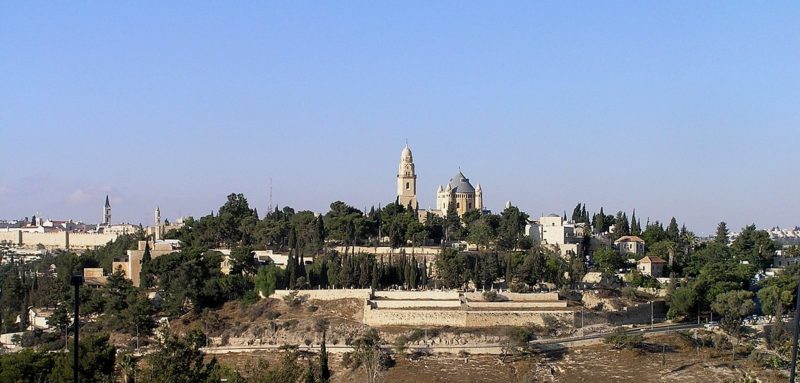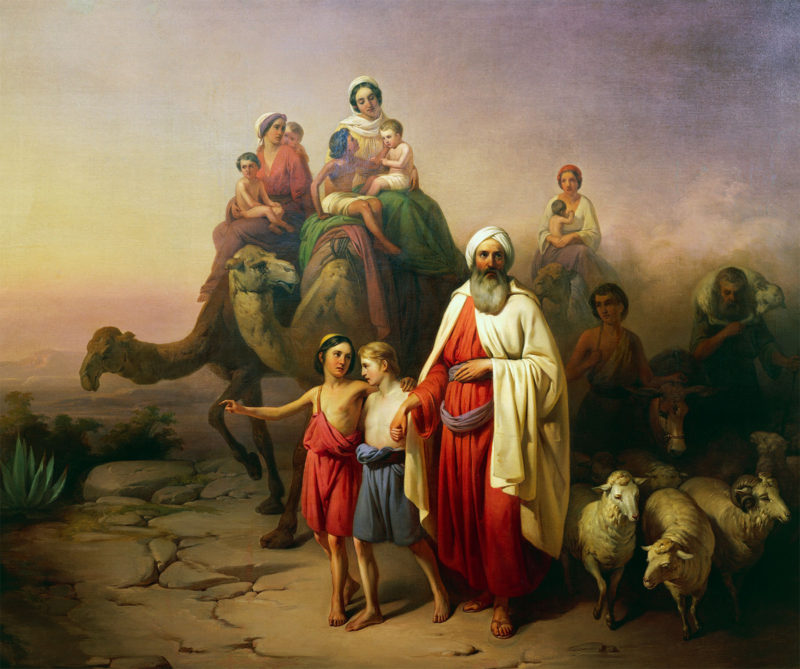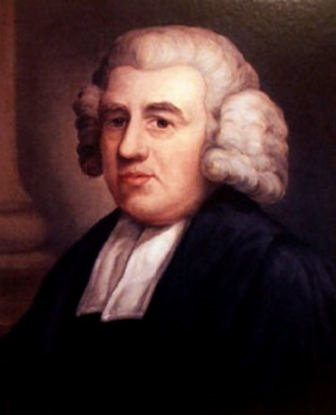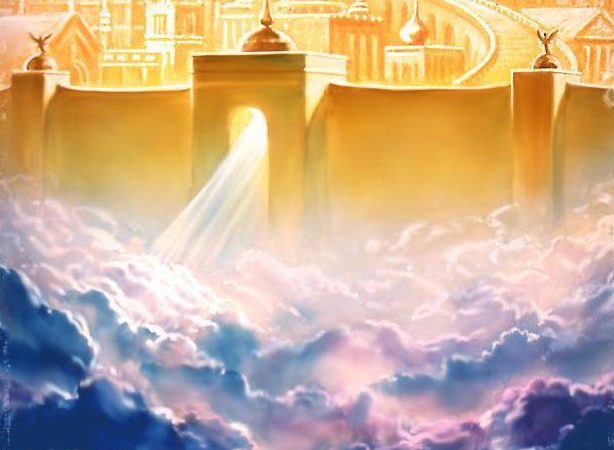Psalm 87 is short and easily passed over. But its six verses put the reader at the crossroads between an Old Testament promise and its New Testament fulfillment. What was God’s promise? To bless Abraham and make him and his descendants a blessing to ALL nations. God’s people were at their best when they were blessing others and not focused on their own status as chosen people.
The fulfillment is found in the book of Revelation when the New Jerusalem descends in all her bridal glory from heaven to earth (Rev. 21:2) and we witness the great ingathering of the nations into the city of God at the end of history (Rev. 21:22-27). When the Jewish people sang this psalm they were reminding themselves of their calling to be a blessing to all nations.

Psalm 76 records the convergence of an ancient city and a holy mountain. God has established His home in Salem of Judah, on Mount Zion: His tent is in Salem, his dwelling place in Zion. The same convergence is found in Psalm 87.
In Judah God is known;
his name is great in Israel.
His abode has been established in Salem,
his dwelling place in Zion. Psalm 76:1-2
In Isaiah 9:6, the prophet declares that the child born to reign from David’s royal capital, Jerusalem, the City of Peace, will himself be the Prince of Peace.
For to us a child is born, to us a son is given; and the government shall be upon his shoulder, and his name shall be called Wonderful Counselor, Mighty God, Everlasting Father, Prince of Peace.
Psalm 87 reminds us that all nations will be blessed through Abraham, all nations will be drawn into the New Jerusalem. Even those nations that are enemies of God. How can this be?
The New Jerusalem will include Jews and Gentiles
The Jews thought only they would be saved, but God grafted in the Gentile believers. After Christ’s death on the cross, all Christ followers—Jew and Gentile—comprise God’s covenant people.
Now, in similar fashion, we read the prophetic reminder that those who were enemies of God will be included. The New Jerusalem is the City of Peace and the King is the Prince of Peace. How can this be? By the blood of Christ that makes one kingdom of many tribes and nations.
Therefore remember that at one time you Gentiles in the flesh, called “the uncircumcision” by what is called the circumcision, which is made in the flesh by hands– remember that you were at that time separated from Christ, alienated from the commonwealth of Israel and strangers to the covenants of promise, having no hope and without God in the world. But now in Christ Jesus you who once were far off have been brought near by the blood of Christ. For he himself is our peace, who has made us both one and has broken down in his flesh the dividing wall of hostility by abolishing the law of commandments expressed in ordinances, that he might create in himself one new man in place of the two, so making peace, and might reconcile us both to God in one body through the cross, thereby killing the hostility. Ephesians 2:11-16 ESV
How will the turmoil, brokenness, suffering and pain be ended? By the final effect of Christ’s atonement, the returning of the Messiah, the Prince of Peace, to the City of Peace. Peoples from all nations, even those who were the enemies of God, will become citizens of the City of Peace through the blood of the Lamb.
The New Jerusalem will be the capital of the world
Psalm 87 is divided into two distinct parts: vv. 1-3 and vv. 4-6. The first part celebrates that the place where He will meet with His people will be built in this city.
Psalm 87:1-3
On the holy mount stands the city he founded;
the Lord loves the gates of Zion
more than all the dwelling places of Jacob.
Glorious things of you are spoken,
O city of God. Selah

Note that the holy Mount Zion will become the site of the holy city and the holy temple of God. God is the founder of this city. Hebrews 11:10 reveals that Abraham and his descendants wandering in the wilderness were looking for the city of God: For he was looking forward to the city that has foundations, whose designer and builder is God. God not only chose the site of the city, He was the architect and the builder of the city.
Jerusalem, the eternal capital of the Jewish people, will become the global city of all humankind. God loves this city. He loves its gates. Jerusalem is not merely a time-bound, place-bound city; it is a prophetic vision of the eternal city, the New Jerusalem that will descend from heaven to earth at the end of time.
Outside the gates of the ancient city, on the holy mountain, the Prince of Peace became the man of sorrows to suffer on Golgotha’s tree to bring us peace. First, peace between God and man, but also peace between man and man: between Jew and Gentile, slave and free, male and female, and to bring peace between man and the rest of creation.
Jerusalem is glorious! Why? Because it is the holy city. Zion is the holy mountain, and here the Prince of Peace brought peace.
Hymn to the New Jerusalem
John Newton, the famous slave trader, was crossing the Atlantic with a cargo of human lives when he was confronted by Jesus Christ. The Prince of Peace saved Newton and transformed him from a diabolical trader in human flesh to an evangelist and fighter for the emancipation of those same slaves.
Newton wrote the world’s favorite hymn, “Amazing Grace,” an anthem to the saving grace of Christ to “save a wretch like me.” He also wrote a wonderful hymn about the City of God. We know it today as “Glorious Things of Thee Are Spoken.” The first and last stanzas relate the wonder of the City of God in human imagination:
Glorious things of thee are spoken,
Zion, city of our God!
He, whose Word cannot be broken,
Formed thee for His own abode;
On the Rock of Ages founded,
What can shake thy sure repose?
With salvation’s walls surrounded,
Thou mayst smile at all thy foes.
Savior, if of Zion’s city,
I through grace a member am,
Let the world deride or pity,
I will glory in Thy name;
Fading is the worldling’s pleasure,
All his boasted pomp and show;
Solid joys and lasting treasure
None but Zion’s children know.
(For a choral rendition of this hymn by Kings College Cambridge go here.)
- Darrow Miller
… to be continued






